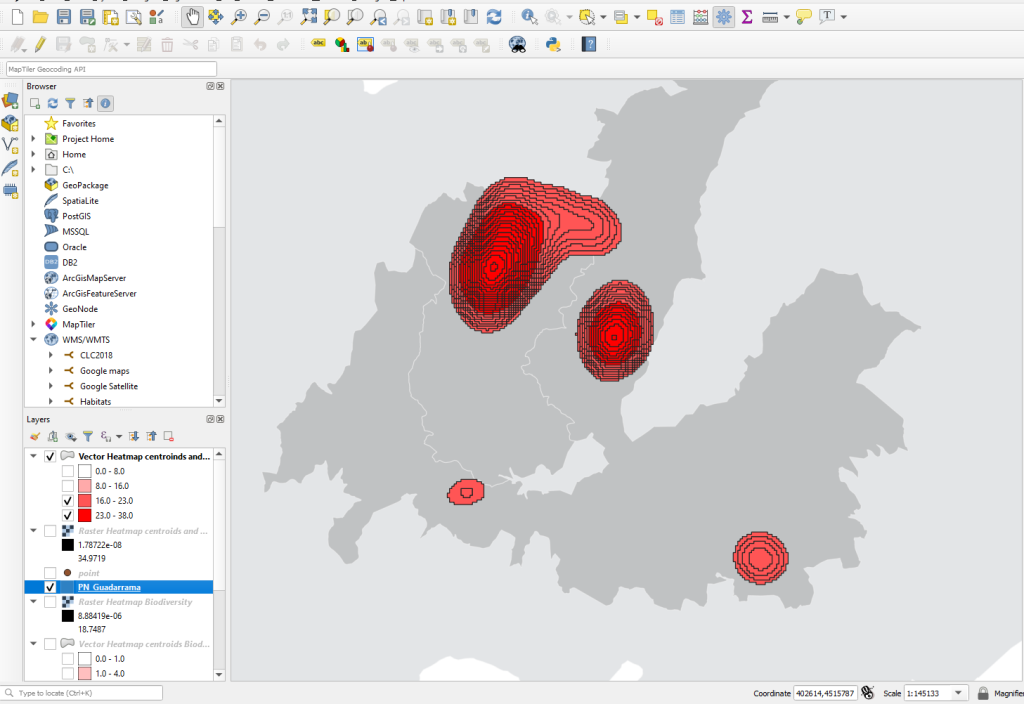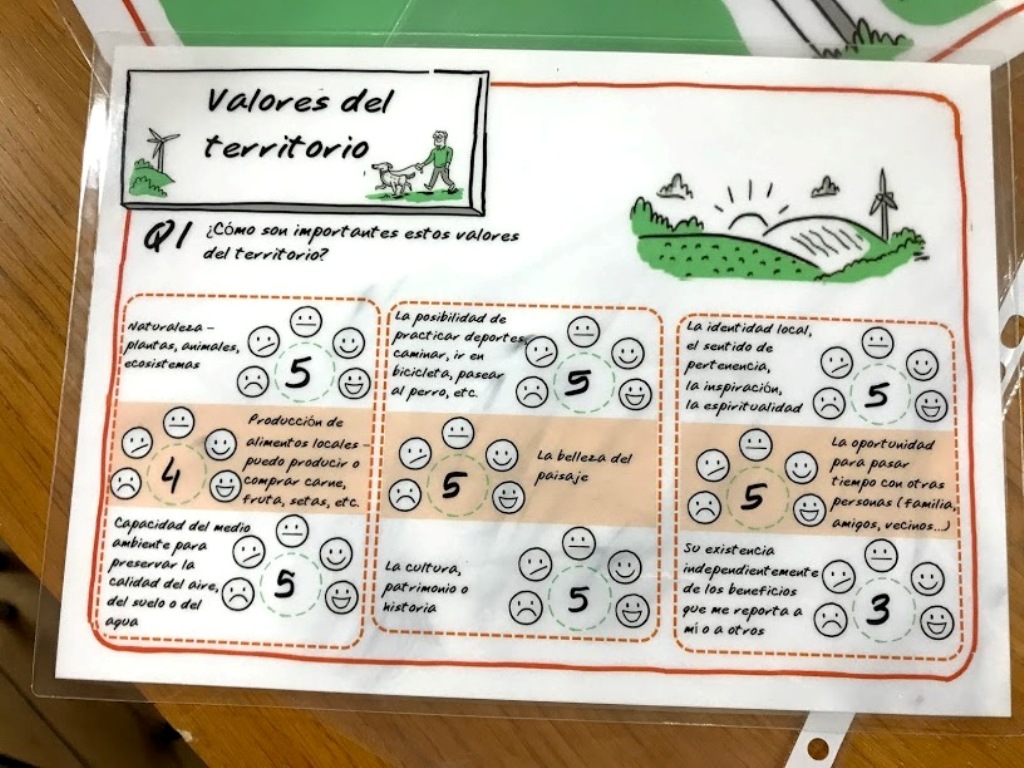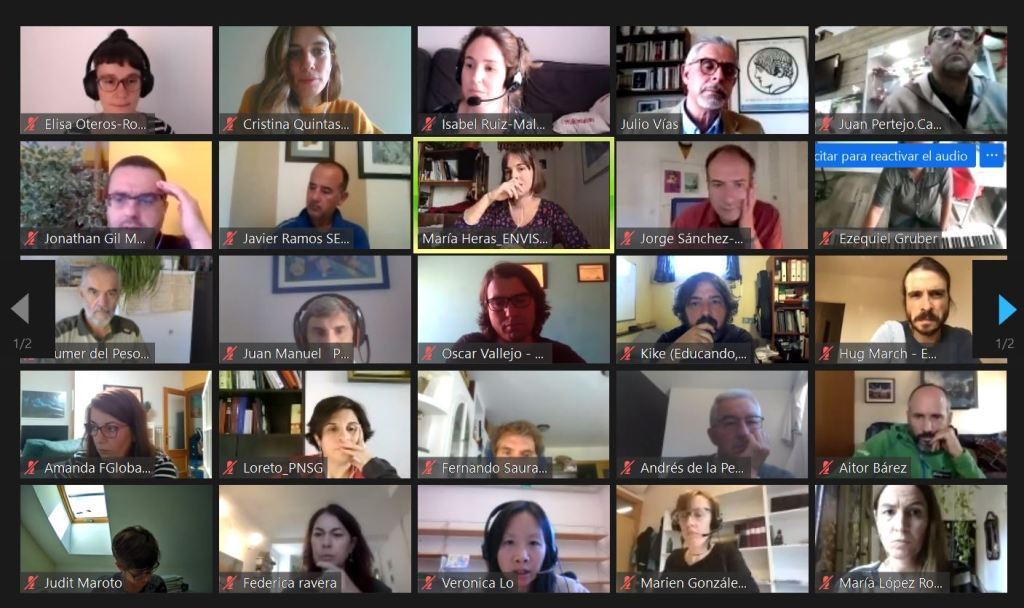Elucidating visions and future scenarios for park management
Screenshot of the preliminary results from PGIS analysis conducted in the Sierra de Guadarrama National Park (Spatial data obtained with Mapptionaire)
Miguel Ángel Cebrián Piqueras
Streamline illustrations used to facilitate interviews and discussions groups in the Sierra de Guadarrama National Park
Veronica Lo
Online workshop for participatory scenario planning in the Sierra de Guadarrama National Park
UOC team
These three tools help to identify visions and elaborate future scenarios, in a participatory way, for protected areas management:
- Participatory mapping (PGIS), a tool to visualize information in a particular geographical context focusing on a certain issue of interest. This tool was used in surveys to elicit the residents’ visions based on perceptions of landscape values and local knowledge;
- Streamline, an open-source narrative synthesis tool that integrates graphics in the form of canvases and tiles, facilitating interviews and discussion groups in a creative and stimulating way. Streamline was used with stakeholders’ expressing their values and preferences for management actions, and sharing their knowledge of changes in the landscape;
- Participatory scenario planning exercise, a deliberative process that was facilitated about plausible and desired futures through a two-day online workshop (due to the Covid-19 pandemic) with stakeholders. Based on the current socio-ecological conditions and the factors driving change, participants weighed up what could happen in the coming 20 years, discussed implications for biodiversity conservation and the quality of life of those who currently enjoy the ecosystem services it provides, whilst identifying the strategies to address them.
- Inviting and giving voice to stakeholder groups that are often poorly included in social spaces to publicly debate about conservation;
- Creating a collaborative process built upon dissent-based approaches to promote a transparent and horizontal work-space;
- Building workgroups with a balanced representation between stakeholder groups, regions of the residence and gender, helps so that not only majoritarian voices are heard.
- Local facilitators and collaborators were essential to approach a big sample of local residents in the surveys and the workshop;
- Online processes require significant efforts and human resources to handle multiple platforms and technical issues simultaneously. Specific expert facilitation skills are required;
- Scenario planning methodologies should more strongly consider different potential disturbances and how drivers of change in the near and far future can be affected by wildcard events such as a pandemic.



